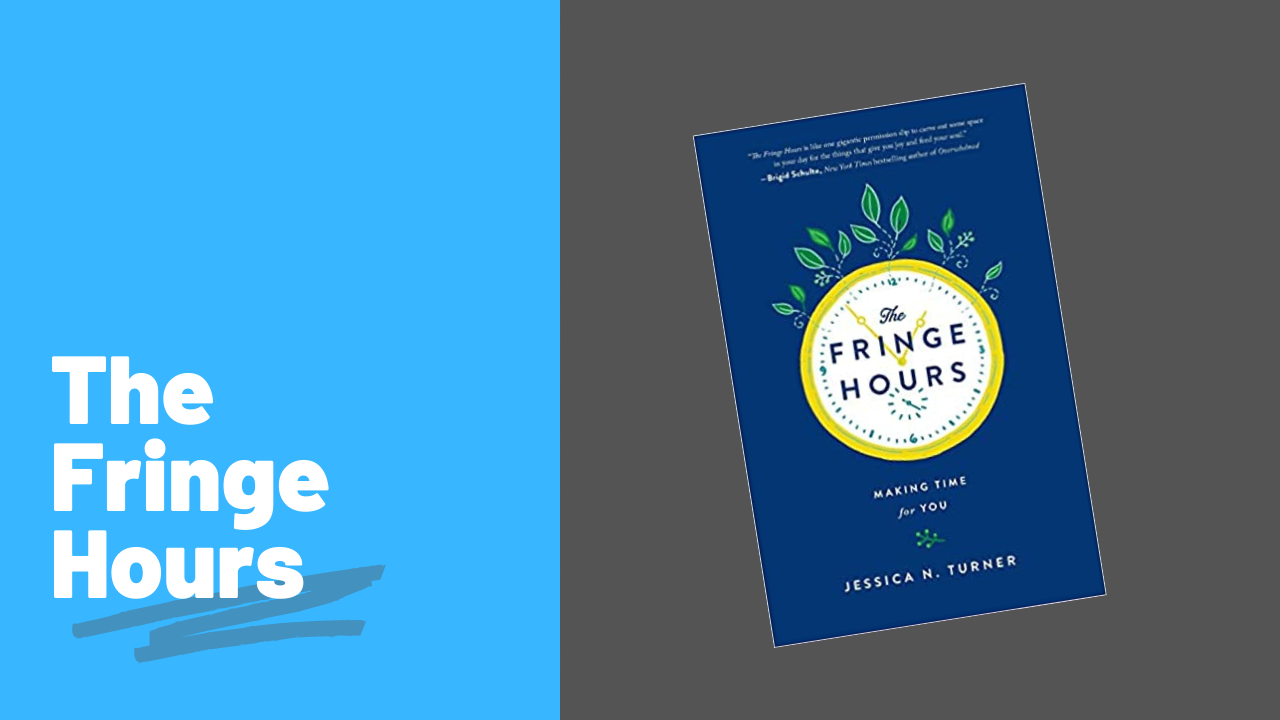I have no idea where and when I decided that The Fringe Hours by Jessica Turner was a book I should be reading. Within the first few pages it’s very obvious that the book is focused directly on women that want to have some time for themselves. The whole goal of the book is to give women permission, and teach them, how to use their gifts not just to help other people but to fill themselves up as well1.
While this isn’t aimed at me, and I think there is a fatal flaw in the premise of the book, there are some interesting points to discuss.
First, Turner talks about balance and how we equate balance with everything fitting neatly into our lives2. The truth is that we’re always leaning towards one side or the other. We’re always in a process of aiming back towards the middle.
I like to ride my bicycle, and spend time up on mountain peaks. For the last few year I’ve mostly run and trained for being in the mountains. Now I’m mostly riding again. I’m always in a state of flux between these endeavours and unless I get to a point where I can do whatever I want and not think about money, I’ll always be able to put more time into one activity at the expense of the other.

Getting Started with Zettelkasten
If you’ve been wondering about what Zettelkasten is and how to start organizing your notes with this excellent system then this course is for you. I’ll walk you through how I use this system to develop my reading research for posts like this one here. You can also become a member to get all my courses.
$99 USD (30-day guarantee)
Turner dives deeper into “balance” as she addresses how easy it is to book ourselves up with a bunch of stuff that all seems entirely fine as single items, but add up to a life of overwhelm3. This is the dance classes, and skating, and soccer that are all decent activities for your kids to be in. When you have multiple kids going to multiple things though you have a recipe for a week that runs you off your feet. Those good things for your kids ends up with a life that’s the most scheduled life in the history of childhood. David Brooks talked about this in The Second Mountain when he talked about children living the most controlled childhood ever, then being released into adulthood where they are told anything is possible4.
Not only does this whiplash make it hard on kids becoming adults because they don’t get to test out responsibility as they get older, it’s hard on parents because we overparent ourselves instead of letting them entertain themselves5.
This is also a uniquely female problem as women please others to the point of their own emptiness6 as they also let guilt control their action7. It’s easy to fall into the comparison trap when you see the curated lives of other people and frame that against the reality you see in your own life.
Finally, she introduced my family to an excellent rule called _the no yell rule_8. In short, if your yelling at your kids to get them to some activity they clearly don’t value it enough to get themselves there and you should just stop it. We’ve adopted this and it has caused one kid to not get to skating one night because I wasn’t going to yell at her to get her there on time. We simply opted out of the night.
She’s ready on time now and I don’t have to expend lots of extra energy trying to get her moving.
The Fatal Flaw?
I said at the beginning that I found one fatal flaw with that book. The flaw is the assumed premise that a woman can only ever expect to have fringe hours in her life for anything that keeps her going. This shows in Turner’s example of reading magazines while blow drying her hair9. This seems mostly like productivity porn to which I’d say, you like the idea of reading magazines but if you’re not willing to cancel other activities so that you can read the magazines then you don’t value that activity.
Further, there is only a passing mention of asking the men around to do more. It’s presumed that all the child rearing and house chores will fall on a woman’s plate, and while this is the case it shouldn’t be. I think we’d have a much stronger book if it started with an admonition to get men doing more. Then assuming that you’ve actually got a partner doing the work they should be doing, and you’ve said no to a bunch of stuff you’ve been guilted into, start using those extra productivity tips like reading a magazine while drying your hair.
Should You Read The Fringe Hours by Jessica Turner
Eh, nope.
It’s not a terrible book, but it’s fairly surface oriented and has that one big flaw assuming that a women can only ever expect fringe hours in her life.
Instead read Atomic Habits, Deep Work, Digital Minimalism if you’re looking for a productivity book. If you’re looking for a parenting based book that gets guys doing something look at Raising Empowered Daughters or All In.
